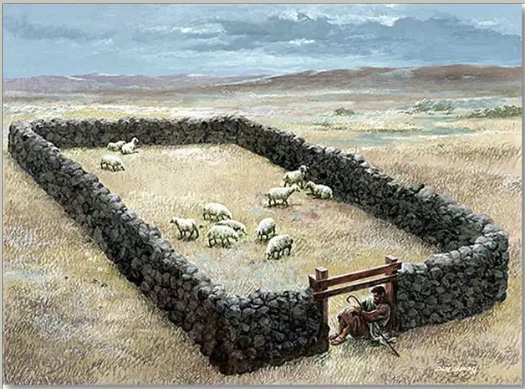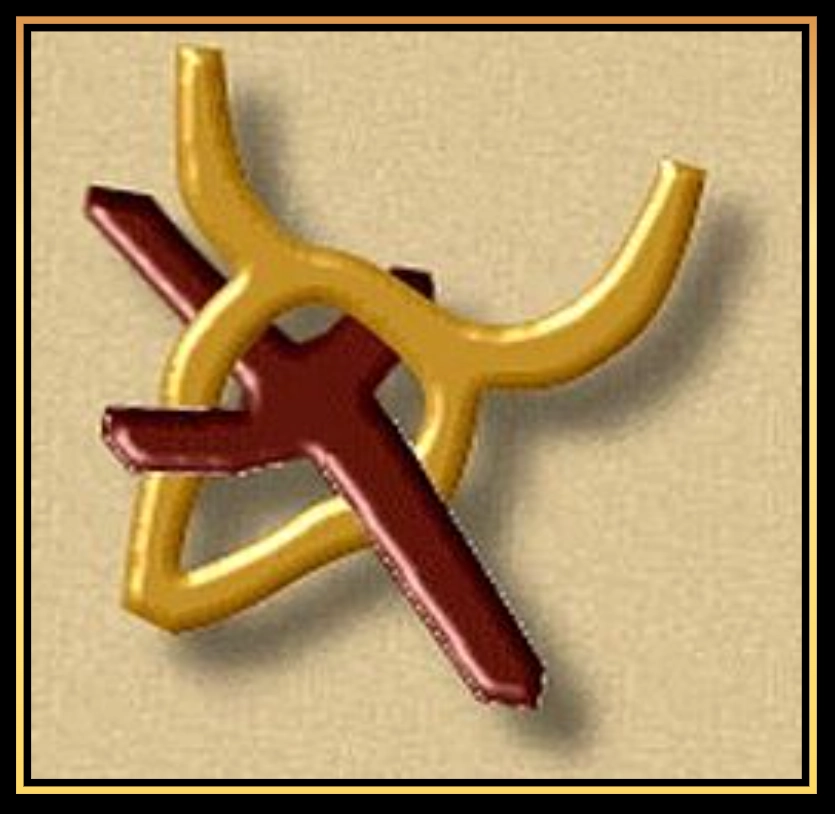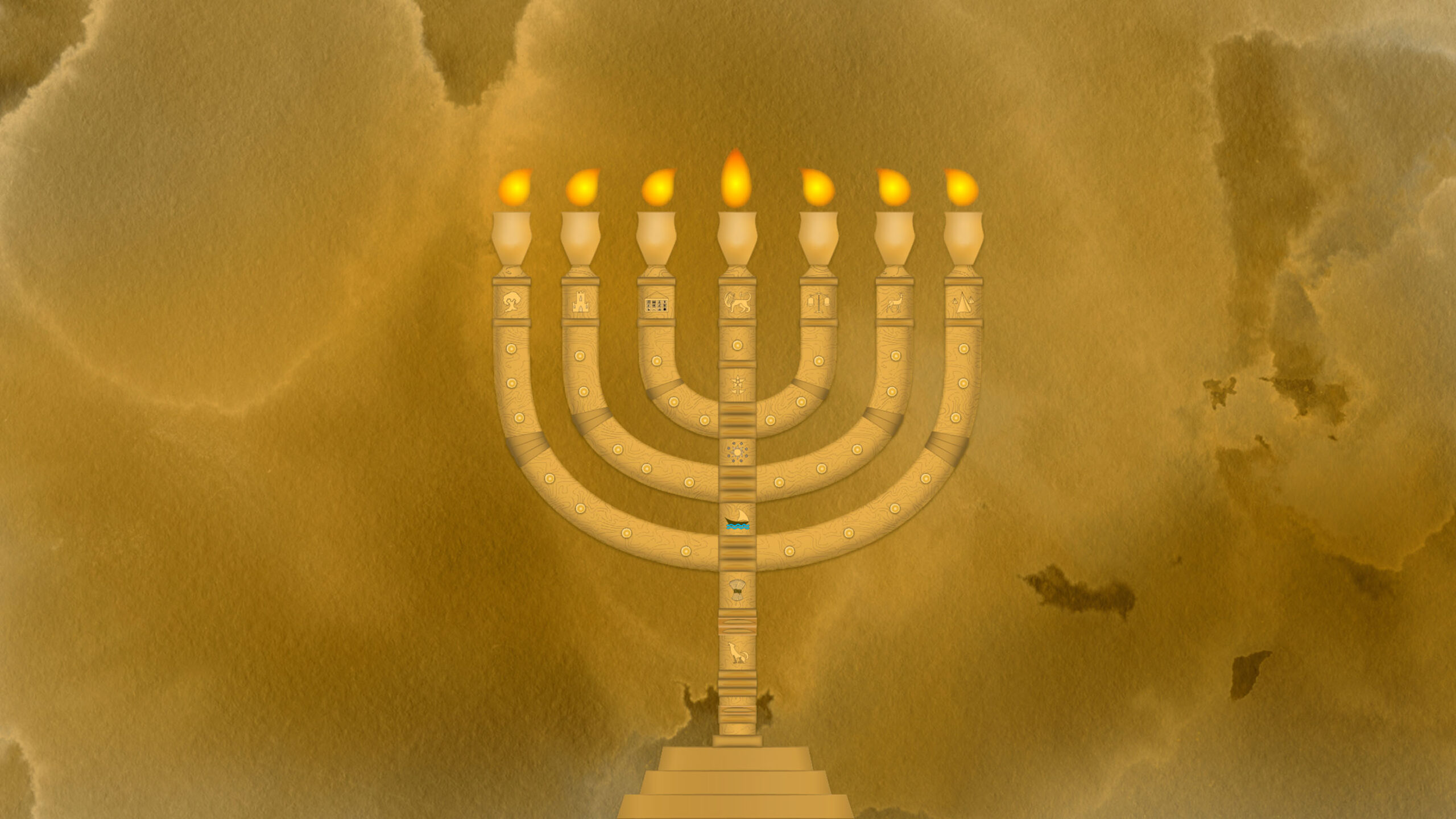Parasha Bereshit (Ge. 1:1 – 6:8)
Haftarah (Isa. 42:5 – 43:10)
Brit Chadasha (Jn. 1:1 – 5)
prepared by P. R. Reid, a bond servant of Yeshua HaMashiach
October 12 2025
- Ps. 51:15: “O Lord, open my lips, and my mouth shall show forth Your praise.”
- אֲ֭דֹנָי שְׂפָתַ֣י תִּפְתָּ֑ח וּ֝פִ֗י יַגִּ֥יד תְּהִלָּתֶֽךָ
The Torah
- As we begin a new Torah cycle, there are probably some definitions that will be pertinent to our discussion.
- The Torah is generally considered to be the first five books of Scripture; namely, Genesis (Bereshit), Exodus (Sh’mot), Leviticus (V’Yikra), Numbers (Bamidbar) and Deuteronomy (D’varim).
- The Hebrew word for Torah,תּוֹרָה , which basically means laws, His law. Torah stems from the root word Yara,יָרָה , which means “to hit the mark.” Those who study Torah are either going to “hit the mark” or not. Our goal is to aim for the bullseye on an archery target.
- I will be using the word Parasha, which may be new to you as well. This word simply means a segment of study. The Rabbis took the first five books and divided it into annual portions of study. When the cycle has been completed, the process begins anew.
- There is also a Haftarah segment. This word looks like it would mean a “half a Torah,” that is not the case. The Haftarah portions will be found among various prophets. Within the teachings of the prophets, we will find connections to the Torah portion for that week. The Haftarahs were devised when, while in captivity, Israel was forbidden to study their own Torah. When they studied the corresponding Haftarah, they would be reminded of the instruction contained in the Parasha.
- As believers in Messiah Yeshua, we find connections to our Parasha also within the Brit Chadasha, the New Testament.
- In my opinion, Scripture is broken down for us as follows:
- The Torah, the first five books, contain The Fathers instructions, His “Rules of the Kingdom.”
- The Prophets deliver either praise or judgment against Israel for their obedience or disobedience to The Fathers instructions.
- The Brit Chadasha, the New Testament, are a series of letters to the “bride” of Messiah on how she is to prepare herself for Yeshuas’ second advent.

- As we come to faith, i.e. “The Faith of Our Fathers” our question is often, where do we begin? The Apostle Paul answers this question for us as well as John, the beloved. “The Faith of Our Father” is the belief in the supreme being, that is YaHaVah and His Son, Yeshua, the Mashiach or the anointed one.
- In Acts 15:20-21 James, the brother of Yeshua, provides the answer. The backdrop of the Book of Acts was the Jerusalem council. The main question for this council was what do we do with the new converts as the prospect of circumcision weighed heavily on their mind? This was the answer.
- Acts 15:20-21: “…but that we write to them (new converts) to abstain from things polluted by idols, from sexual immorality, from things strangled, and from blood. For Moses has had throughout many generations those who preached him in every city, being read in the synagogues every Sabbath.”
- In the Hebrew culture, everyone knew i.e. the native born and the gentile convert, that the words of Moses, The Torah, was being taught every single week, on the Sabbath day, in their local Synagogue.
- This instruction is very clear. When we come to faith we are to go every week to hear the words of Moses which are, of course, the words spoken to him by YaHaVah. This is how we learn to express our love for Him, by walking in obedience to Him.
- The idea of going back to the beginning was also found in John 1:1: “In the beginning was the Word, and the Word was with God, and the Word was God.” **What is required of us, the believer, is found in the beginning of Scripture, The Torah.
Parasha Bereshit
Ge. 1:1 – 6:8
- Parasha Highlights:
- 1.) The week of creation
- 2.) The seventh day Sabbath
- 3.) The formed man of Ge. 2:7 ( the eighth day)
- 4.) The Garden of Eden, Gan Eden
- 5.) The “seed war” prophecy
- We are going to begin our study with the eighth day of creation, particularly Ge. 2:8 – 9.
- Ge. 2:8 – 9: “YaHaVah Elohay planted a garden eastward in Eden, and there He put the man whom He had formed. And out of the ground YaHaVah Elohay made every tree grow that is pleasant to the sight and good for food. The tree of life was also in the midst of the garden, and the tree of the knowledge of good and evil.”
- The tree of life is going to produce two types of food, physical and spiritual, while the tree of the knowledge of good and evil is going to produce a mixture of the physical and spiritual. This mixture is forbidden by Torah.
- Adam and Chava disobeyed Yahs command to only eat from the tree of life. Their disobedience in the physical caused a breach in the spiritual as they were expelled from the walled garden. They could no longer have physical proximity to the tree of life.
- It’s the goal of all covenant believers to once again dwell in that intimate proximity. Since we live in the physical realm it follows that our physical nature comes first, i.e. we must first be birthed into this realm. We have the physical choice to walk after YaHaVah thereby becoming a spiritually awakened believer.
- Ge 3:22: “Then YaHaVah Elohay said, ‘behold, the man has become like one of Us, to know good and evil. And now, lest he put out his hand and take also of the tree of life, and eat, and live forever.”
- This verse tells us that eating from the tree of life produces “eternal life.” Therefore, eating from the tree of the knowledge of good and evil, i.e. eating from the tree of mixing produces the opposite, no life eternal.
- Prov. 3:18: “She (wisdom) is like a tree of life to those who obtain her, and everyone who grasps hold of her will be blessed.” (NET) By extension Prov. 9:10: “The fear of Yah is the beginning of wisdom.”
- Prov. 11:30: “The fruit of the righteous is a tree of life, and he who wins souls is wise.”
- Rev. 2:7: “He who has an ear, let him hear what the Spirit says to the Qehilot. To him who overcomes I will give to eat from the tree of life, which is in the midst of the Paradise of Yah.”
- Overcomes what?
- The choice to sin against Yah? The world system? Holding on to grudges and unforgiveness? I’m certain you can think of more items.
- Rev. 22:14: “Blessed are those who do His commandments, that they may have the right to the tree of life, and may enter through the gates into the city.”
- Rev. 22:19: “And if anyone takes away from the words of the book of this prophecy, Yah shall take away his part from the Book of Life, from the holy city, and from the things which are written in this book.”
- Is it possible that when we choose to partake of the tree of life our obedience is written in the Book of Life?
- The tree of life is going to produce “good” fruit while the tree of mixing will produce “evil” fruit. Ge. 3:15 speaks to the war between these two trees, a war that is still going strong today.
- Ge. 3:15: “And I will put enmity between you and the woman, and between your seed and her Seed; He shall bruise your head, and you shall bruise His heel.”
- The “your seed” speaks to the serpent seed. Those who eat from the Tree of the Knowledge of Good and Evil are eating from the serpent seed. These are those who “mix” their worship by following manmade dogma instead of following His instruction, The Torah.
- To eat from the “evil” tree, i.e. the tree of mixing has at least two spiritual outcomes. Unbelief or partaking in false manmade doctrines.
- In our day and hour it’s important to occupy our self by preparing our “wedding garments.” Our bridegroom, Yeshua HaMashiach, is a “lamb without blemish,” Ex. 12:5 tells us that He will not join with a bride who has defiled herself by worshipping at the feet of the tree of mixing. Scripture tells us…
- Eph. 5:27: “…that He might present her (His bride) to Himself a glorious qahal, not having spot or wrinkle or any such thing, but that she should be holy and without blemish.” **The bride is supposed to match the bridegroom in ritual purity.
- Col. 1:21- 22: “And you, who once were alienated and enemies in your mind by wicked works, yet now He has reconciled in the body of His flesh through death, to present you holy, and blameless, and above reproach in His sight.”
- Phil. 2:15 – 16: “…that you may become blameless and harmless, children of Yah without fault in the midst of a crooked and perverse generation, among whom you shine as lights in the world, holding fast the word of life, so that I may rejoice in the day of Messiah that I have not run in vain or labored in vain.”
- Lk. 1:6: “And they were both righteous before Yah, walking in all the commandments and ordinances of YaHaVah blameless.”
- Walking in all the commandments and ordinances of YaHaVah = to be blameless or without spot or wrinkle.
- Since Gan Eden, all covenant believers have been responsible to walk out their own salvation, i.e. preparing their own wedding garments. Covenant believers are still in the betrothal stage of our marriage called the “erusin.”
- Our walk with Messiah Yeshua is modeled after the ancient Hebrew wedding. The Father of the bridegroom approaches the brides father about the marriage. If the bride accepts the proposal, the betrothed couple enter into the “erusin” stage of their marriage contract.
- Typically, the Father of the groom allows his son to build an addition on his home where the newly married couple will begin their marriage. The time period of the building of the addition is approximately one year.
- Consider Jn. 14:2 – 3: “In My Father’s house are many mansions; if it were not so, I would have told you. I go to prepare a place for you.
- And if I go and prepare a place for you, I will come again and receive you to Myself; that where I am, there you may be also.**Yeshua, the bridegroom, is going to prepare a place for His bride.
- The Father of the groom decides when the time is right for His son to fetch His bride.
- Mt. 24:36: “But of that day and hour no one knows, not even the angels of heaven, but My Father only.” **Speaking to Yeshuas second advent. One thing is certain however, this event will occur on an appointed time, Yom Teruah is my guess.
- Think for a moment what Israel looked like centuries ago, i.e. no electricity. You would have needed your oil lamp just to see a few feet from where you were standing. Now consider Mt. 25:1: “Then the kingdom of heaven shall be likened to ten virgins who took their lamps and went out to meet the bridegroom.”
- On the given night, The Father gives the command for the bridegroom to fetch His bride. He, along with two witnesses and the friends of the wedding party, light their oil lamps and begin the journey to fetch His bride.
- During the time between the betrothal and marriage, the bride is preparing her wedding garments. When sufficient time has lapsed, every evening, the bride is watching for the procession of her bridegroom. On the given night, she sees a faint light off in the distance and realizes He is coming for her.
- We all know the parable, five are wise and five are foolish. The five wise virgins will enter into the marriage supper.
- Mt. 25:6 – 13: “And at midnight a cry was heard: ‘behold, the bridegroom is coming; go out to meet him!’ Then all those virgins arose and trimmed their lamps. And the foolish said to the wise, ‘give us some of your oil, for our lamps are going out.’ But the wise answered, saying, ‘no, lest there should not be enough for us and you; but go rather to those who sell, and buy for yourselves.’ And while they went to buy, the bridegroom came, and those who were ready went in with him to the wedding; and the door was shut.
- Afterward the other virgins came also, saying, ‘Lord, Lord, open to us!’ But he answered and said, ‘assuredly, I say to you, I do not know you.’ Watch therefore, for you know neither the day nor the hour in which the Son of Man is coming.”
- The only light would be inside the room while outside it would be total darkness. This is not hell, not yet. These are those who have rejected Yeshua, the light, those that have chosen to dwell in spiritual darkness.
- It is my opinion that the Tree of Life can be likened to The Torah. My question is this; if Yeshua is the “living Torah,” if one rejects the Tree of Life are they also rejecting Yeshua?
Haftarah
Is. 42:5 – 43:10
- Is. 42:5 – 8: “Thus says Elohay YaHaVah, who created the heavens and stretched them out, who spread forth the earth and that which comes from it, who gives breath to the people on it, and spirit to those who walk on it. I, YaHaVah, have called You in righteousness, and will hold Your hand; I will keep You and give You as a covenant to the people, as a light to the Gentiles, to open blind eyes, to bring out prisoners from the prison, those who sit in darkness from the prison house.
- The connection to our Torah portion, Bereshit, would be a reference to His creation. Recall the word Bereshit can be understood to mean a “covenant with fire in the center.”
- I am YaHaVah, that is My name; and My glory I will not give to another, nor My praise to carved images.”
- He has called us, his human creation, to be formed by Him, through a covenant relationship, into righteousness.
Brit Chadasha
- Our Brit Chadasha connection is found in Jn 1:1 – 5: “In the beginning was the Word, and the Word was with Yah, and the Word was Yah. He was in the beginning with Yah. All things were made through Him, and without Him nothing was made that was made. In Him was life, and the life was the light of men. And the light shines in the darkness, and the darkness did not comprehend it.”
- This Scripture is directing the reader back to the beginning and is providing a connection to our Parasha in the majesty and sovereignty of Yah as the creator.
- In conclusion, the tree of life is from he beginning and reappears in Rev. 22:1 – 2: “And he showed me a pure river of water of life, clear as crystal, proceeding from the throne of Yah and of the Lamb. In the middle of its street, and on either side of the river, was the tree of life, which bore twelve fruits, each tree yielding its fruit every month. The leaves of the tree were for the healing of the nations.”
- Again in Rev. 22:14: “Blessed are those who do His commandments, that they may have the right to the tree of life, and may enter through the gates into the city.
- It’s only when we walk in obedience to the rules contained in the fruit of the tree of life that we have obtained our wedding garments.
- Rev. 19:6 – 9: “And I heard, as it were, the voice of a great multitude, as the sound of many waters and as the sound of mighty thundering’s, saying, ‘alleluia! For YaHaVah Elohay Omnipotent reigns! Let us be glad and rejoice and give Him glory, for the marriage of the Lamb has come, and His wife has made herself ready. And to her it was granted to be arrayed in fine linen, clean and bright, for the fine linen is the righteous acts of the saints. Then he said to me, ‘write: blessed are those who are called to the marriage supper of the Lamb!’ And he said to me, ‘these are the true sayings of Yah.”
- The bride of the Mashiach begins with the Etz Chaim, the tree of life and ends with the tree of life.

